Lloyd Noble: A Man for People and the Land
An oilman felt the responsibility to use his resources to help farmers and ranchers improve their livelihoods, and benefit all of mankind, by rejuvenating the land.
Lloyd Noble knew there was more to the land than just the oil he had found beneath it.
Noble was born in 1896 in Indian Territory, in the train depot town of what is now Ardmore, Oklahoma. He was the son of pioneers who had come from New York looking for new opportunities. His parents, Samuel and Hattie, and his uncle and aunt, Edward and Eva, farmed and operated various businesses in Texas and what is now Oklahoma before settling in Ardmore, where they started a hardware store the same year Lloyd was born.
Noble Brothers Hardware provided wares to the local farmers and ranchers, and, as a boy, Lloyd Noble swept floors, stocked shelves and delivered goods for the store. He came in frequent contact with these agricultural producers and admired them for their diligence and humility. He also saw that the early settlers did little to conserve or build up the soil as they generated their prized commodity, cotton, year after year.
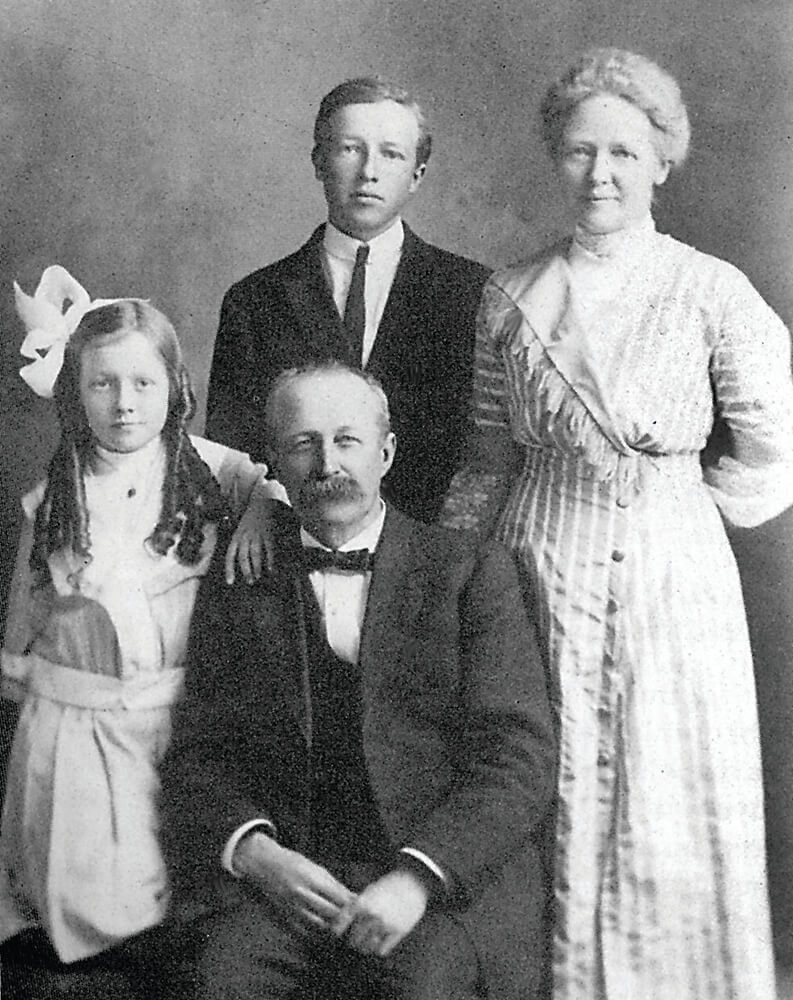
Family Man
Lloyd Noble married Vivian Bilby in 1924. They had three children: Sam, Ed and Ann. After Vivian died in 1936, he raised his young children with a strong work ethic and family values with help from his mother, Hattie Noble, and housekeeper, Nora “Shaffie” Shaffer. Ed once remembered his father as “most loving and most strict” and that he and Sam were instructed “never to do anything that would embarrass (their) sister.” The boys were encouraged to work on farms and ranches in the summer, and Ann was responsible for hosting dinner guests at the home.
From Oil to Soil
In early adulthood, Noble taught school and served briefly during World War I before enrolling in the University of Oklahoma. Eager to begin his own venture, Noble left college early to seek his fortune in the state’s most lucrative new enterprise — oil.
In 1921, the 24-year-old entrepreneur purchased his first drilling rig with assistance from his mother, Hattie, who co-signed a $15,000 loan. Noble became a leader in the oil and gas drilling industry, capitalizing on new ideas and technology to drill deeper and faster than his contemporaries. He quickly became one of the most respected drilling contractors in the U.S.
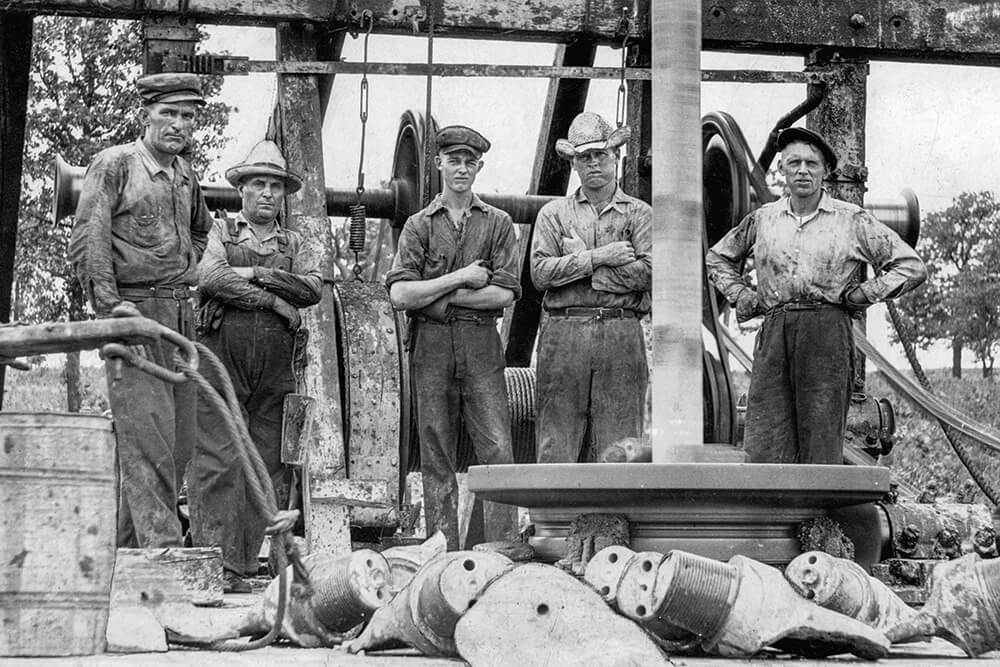
Noble found enjoyment in personal aviation and frequently flew from his home base in Ardmore to his oil rigs across the country. From this bird’s-eye view, he could see that the poor agricultural practices he had observed as a youth were taking their toll on the land. Failure to return nutrients to the soil resulted in a barren land that was susceptible to erosion. Drought compounded the problem, and the winds that swept through the Great Plains in the 1930s carried off precious topsoil — blowing away the region’s economic lifeblood.
World War II effort
After an impromptu meeting with an Englishman who showed up at the Noble home at 10 a.m., Sunday, Sept. 13, 1942, Lloyd Noble agreed to drill oil in Sherwood Forest to fuel British troops on the condition that Frank Porter, of Fain-Porter Drilling Company of Oklahoma City, would join him. The men forfeited any profit for their companies as a contribution to the war effort.
During the Great Depression and Dust Bowl years, Noble saw that others were struggling. Many families fell into despair from the inability to grow food and earn a livelihood from the weakened land. Farmers gave up, leaving in droves to an elusive financial sanctuary in the American West.
Noble, who had at different times retreated to ranches for personal reflection and recreation, didn’t see giving up on the land as the only option. He knew that the revitalization of his community must start with agriculture, and more specifically with rebuilding the soil. This would benefit not only farmers and ranchers but all of society.
The oilman once said: “We believe that while at times we have felt the overshadowing presence of oil, we are living in an area that is essentially agricultural. … the land must continue to provide for our food, clothing and shelter long after the oil is gone.”
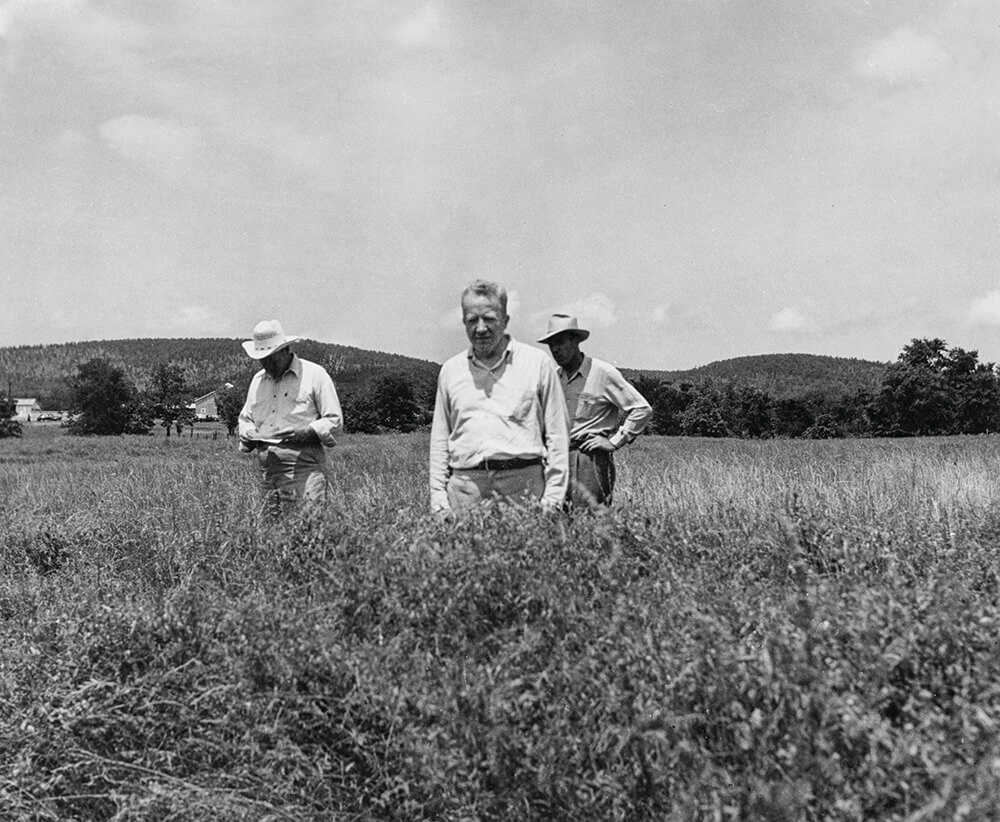
Early Ranch Connection
As a junior in high school, Lloyd Noble decided to drop out of classes and move to the family ranch. He lived there alone for a year tending to cattle. It is said this was a time of self-reflection that greatly impacted him for the rest of his life.
Armed with this conviction, Noble focused his attention on bolstering land stewardship and soil management. In May 1943, he addressed these issues in a column for the 50th anniversary edition of his hometown newspaper. He wrote: “What are we in the present generation going to do with this heritage? Are we going to encourage the terracing, conservation and upbuilding of our soil so it will support a growing, healthy and prosperous livestock and agrarian industry, or are we going to allow our soils to be depleted and our population shifted to other areas as we read about it in the newspapers?”
Two years later, he provided a permanent resource for the agricultural community when he established Noble Research Institute (then called The Samuel Roberts Noble Foundation) on Sept. 19, 1945. He tasked his new organization with benefiting mankind.
In the early days, Noble’s organization focused on education and encouraging area farmers and ranchers to return nutrients to the soil and to conserve resources. He continued to guide the organization until his death on Feb. 14, 1950, just three months after giving a speech in which he said: “No civilization has outlived the usefulness of its soils. When the soil is destroyed, the nation is gone.”
Today, Noble Research Institute, guided in large part by Lloyd Noble’s descendants, continues to build on its legacy of working alongside producers, providing research-based information and assisting them in the essential roles they play in society.
The mission is just as critical today as it was in 1945.
Who Was Lloyd Noble?
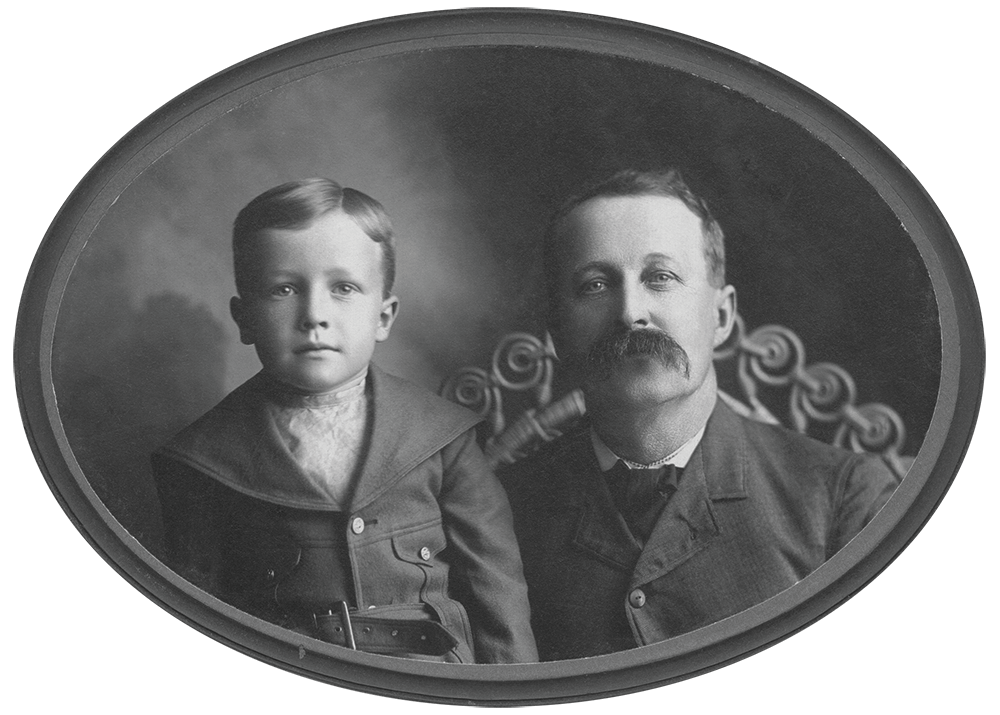
- Full Name: Samuel Lloyd Noble
- Born: Nov. 30, 1896
- Parents: Samuel Roberts and Hattie (Skinner) Noble
- Hair: Sandy curls
- Eye color: Blue
- Interests as a youth: Reading, history, debate
- Employment: Delivery boy for Noble Brothers Hardware and J.A. Felker Grocery, janitor for First Christian Church, teacher in one-room school-houses, entrepreneurial oilman
- Member of the First Presbyterian Church in Ardmore, favorite hymns included “Onward, Christian Soldiers,” “Beautiful Isle of Somewhere,” and “My Faith Looks Up to Thee”
- Military service: U.S. Navy, spring to November 1918
- Attended University of Oklahoma and later became a regent
- Named southern Oklahoma’s most useful citizen in 1948
Looking to the Future
Though the winds have settled from the Dust Bowl, there is still work to be done to restore the health and function of the land. Of the 655 million acres of public and private grazing lands in the U.S., it is estimated that up to 70% of them are in a degraded state.
This degradation does not only affect the individual producer’s ability to grow food and earn a livelihood. It more broadly impairs the quality of food, interferes with fresh water supplies, increases the opportunity for land erosion, and limits the soil’s ability to capture and store atmospheric carbon. However, there are ways to reverse this degradation for the benefit of both producers and all of society.
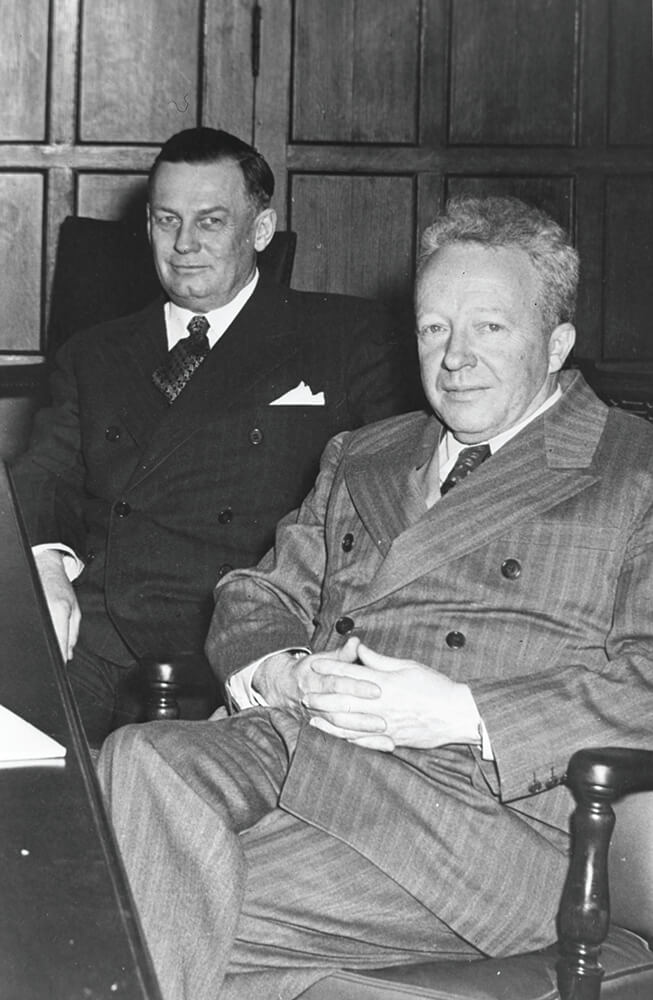
Noble today is developing programs to help ranchers regenerate their grazing lands and achieve long-term financial stability. Specifically, the future of Noble will focus on helping producers embrace and implement regenerative ranching, which is the process of restoring degraded soils by using practices based on ecological principles. Regenerative ranchers work with the natural environmental systems — comprising soil, plants, water, animals and the humans that manage them — to build organic matter and resilience within the soil.
Healthy soil has less nutrient run-off and erosion; sequesters atmospheric carbon, which combats climate variability; and, because of its ability to better hold water, serves as a management tool for both drought and heavy rain. Just a 1% increase in organic matter helps soil hold 20,000 gallons more water per acre.
“As we look to the future, we imagine our nation’s cattle producers having the knowledge and tools needed to rebuild our country’s soil and grazing lands, not only to provide for their families but pave the way for the next generation of producers,” says Steve Rhines, president and CEO of Noble Research Institute. “While we absolutely support the continued delivery of nutritious and affordable food to the world’s plates, our goal will be to help producers leave the land better at sunset than it was at sunrise. We are proud of our legacy and honored to have been entrusted to carry forward Mr. Noble’s vision. It is what provides context and excitement for our next chapter of transformational work.
During this anniversary year, our celebration will focus on the important role farmers and ranchers play in our society, while we — as an organization — continue to grow and evolve to meet the challenges of tomorrow.”
What Others Had To Say
… the outstanding characteristic of Lloyd was that he was strong in fundamentals. I mean in the things that really mattered, really counted. It wasn’t whether you had a necktie or not; that wasn’t his way of judging. His way of judging was how hard you worked, what you were … decent character, honest and honorable person … that’s the way he judged people.”
Dow Hamm, oilman and university friend of Lloyd Noble, quoted in Imagination and Ability: The Life of Lloyd Noble by Odie B. Faulk, et al.
Time after time Lloyd Noble expressed, with only a slight variation of the theme, that the best life was the one lived closest to the soil. … (He believed) Topsoil could be reclaimed by proper utilization of known skills and those yet to be developed. … Rebuilding land was a means of rebuilding people.”
Glen McGee, Lloyd Noble’s minister, in a book manuscript (no date)
In his mind, liberation from fear is the prime motive in the work of the (Noble) foundation. It is felt that development of natural resources will eliminate much of the fear that stalks the daily life of most men …”
Nancy Royal, in a 1948 Sooner Magazine article about Lloyd Noble
No one can do more for our country than to provide jobs by which families can live comfortably and happily. That has been one of the uppermost thoughts in Mr. Noble’s mind. He hasn’t made a great display, but he has done much toward making this country a better place to live.”
P.G. Rawdon, Noble Drilling Company associate and original Noble Foundation trustee, in a speech given June 1, 1947

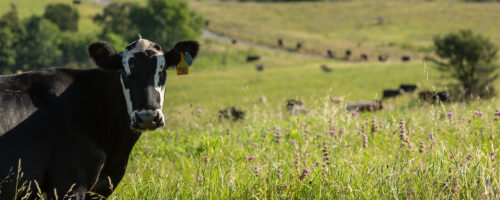

Comment